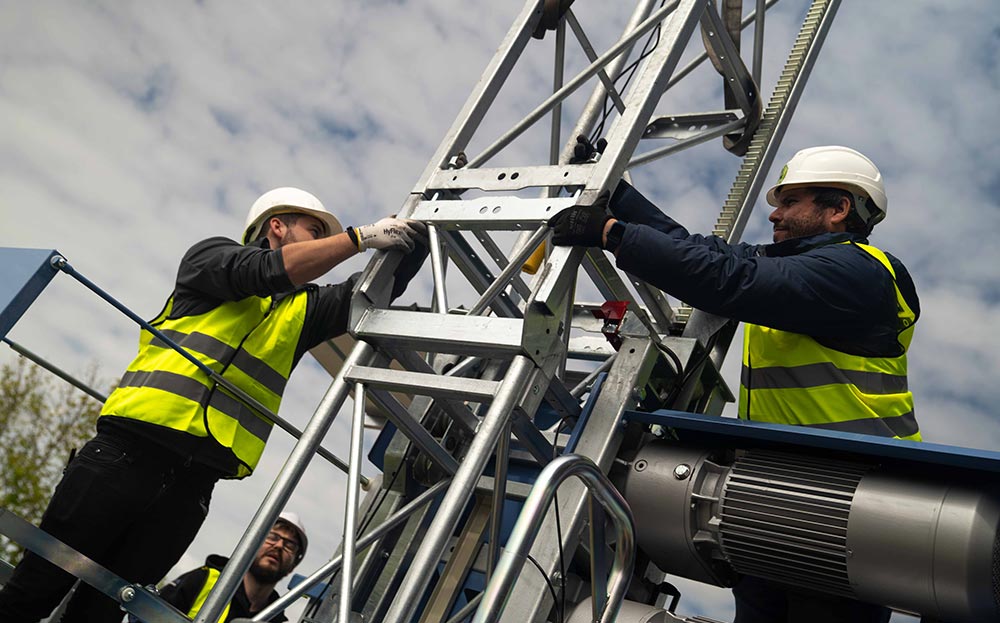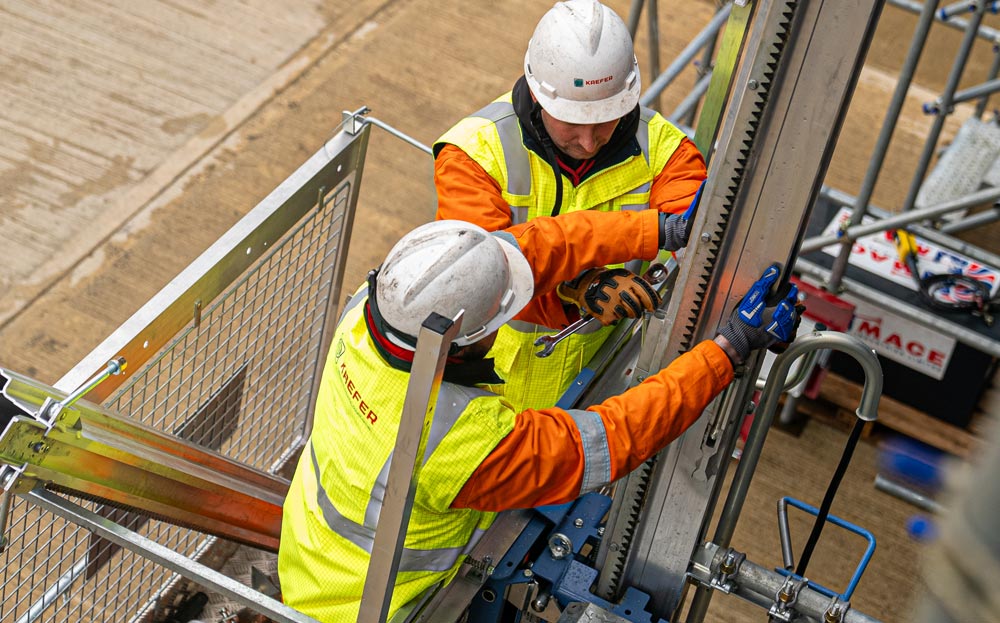Overview
The IPAF Hoist Advanced Installer course is a specialized training program designed for professionals who are responsible for the installation, setup, and dismantling of more complex hoisting systems. This course is intended for those with prior experience in hoist installation who are looking to deepen their knowledge and skills in installing advanced hoisting equipment. The training provides advanced techniques for working with more sophisticated hoist systems, including those that require complex rigging, multi-point installations, and integration with other construction equipment or infrastructure.
The course focuses on the technical and safety aspects of installing large, high-capacity, or custom hoists, and is ideal for professionals who are involved in high-risk environments or challenging installations where safety, precision, and adherence to regulatory standards are critical.
Who Should Attend?
The IPAF Hoist Advanced Installer course is intended for individuals who have previous experience with basic hoist installation and wish to expand their knowledge to work with more complex hoisting systems. It is suitable for:
- Experienced hoist installers and riggers
- Supervisors and site managers involved in complex hoist installations
- Health and safety officers overseeing advanced hoist operations
- Contractors or subcontractors specializing in heavy lifting or complex installations
- Maintenance and service engineers working with advanced hoisting equipment
Participants must have a solid foundation in basic hoist installation techniques and safety procedures, either through previous training (such as the IPAF Hoist Installer course) or practical experience.
What You’ll Learn
The IPAF Hoist Advanced Installer course covers a comprehensive range of advanced topics related to hoist installation, including but not limited to:
- Advanced Hoist Systems: Understanding the technical specifications and operational characteristics of high-capacity or multi-point hoisting systems, including personnel hoists, material hoists, and lifting platforms designed for more demanding tasks.
- Site Assessment for Complex Installations: Conducting thorough risk assessments and selecting appropriate hoisting systems based on specific site conditions, load requirements, and environmental factors.
- Planning Complex Installations: How to plan and coordinate advanced hoist installations, considering factors such as access limitations, load distribution, integration with other construction equipment, and team coordination.
- Rigging and Lifting Techniques: Advanced rigging methods, including the use of multiple anchorage points, specialised lifting equipment, and handling unusually large or heavy loads.
- Installation of Multi-Point Hoists: Step-by-step procedures for safely installing and securing multi-point hoist systems, ensuring stability and proper load distribution.
- Electrical and Mechanical Integration: Installation procedures for hoists with integrated electrical or mechanical components, including connecting power supplies, control systems, and safety devices
- Testing and Commissioning: Advanced testing procedures, including load testing, function testing, and ensuring that the hoist system operates within legal and safety standards before being put into use.
- Complex Site Safety Protocols: Managing safety during high-risk installations, including fall protection, PPE, and coordination with other site personnel. Focus on controlling risks associated with working at height, overhead loads, and confined spaces.
- Troubleshooting and Maintenance: Diagnosing and addressing common installation issues and system failures. Basic troubleshooting skills, including identifying problems with mechanical, electrical, or control components.
- Post-Installation Documentation and Compliance: Creating comprehensive installation reports, conducting thorough inspections, and ensuring compliance with local regulations and safety standards.
Certification & Assessment
Upon successful completion of the course, participants will receive an IPAF Advanced Hoist Installer Certificate and an IPAF PAL Card (Powered Access License) digitally via the IPAF ePAL app which is recognized internationally and indicates that the holder is qualified to install complex hoisting systems safely and competently
Assessment: The course includes both theoretical and practical assessments. The theoretical assessment covers advanced hoist installation procedures, safety regulations, rigging techniques, and troubleshooting. The practical assessment requires participants to demonstrate their ability to safely and correctly install an advanced hoist system, perform necessary testing, and address any installation challenges encountered on-site.
Validity: The IPAF ePAL Card for Hoist Advanced Installers is valid for 5 years. After this period, a revalidation course must be completed to maintain certification.
By completing the IPAF Hoist Advanced Installer course, participants will gain advanced technical expertise and a deep understanding of the complexities involved in installing high-capacity and sophisticated hoist systems. This qualification equips professionals to work on high-risk or demanding projects, ensuring compliance with safety regulations and delivering efficient, reliable installations that meet industry standards.
Maximum Candidates
Maximum of 4 candidates
Duration
2-3 days (can be non-consecutive) depending on experience.
Price
POA


Find a date that works

Hi there, I'm Scott Grant
Scott Grant is a seasoned Training Manager and Royal Navy veteran with over 20 years of expertise in the training and access equipment industry. He delivers accredited training programs for MEWPs, MCWPs, construction hoists, health and safety, first aid, and fire safety.
Scott is a Senior IPAF Instructor and certified PASMA Instructor and also delivers CITB and IOSH-accredited courses, ensuring industry-leading standards and compliance with health and safety regulations.
Here at Mace Training, Scott plays a pivotal role in developing training strategies that address evolving workforce needs, helping professionals operate safely and efficiently in demanding environments.

Scott Grant
Training Manager
